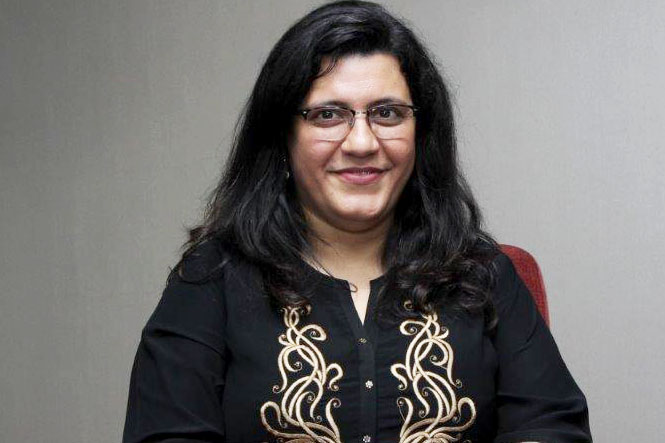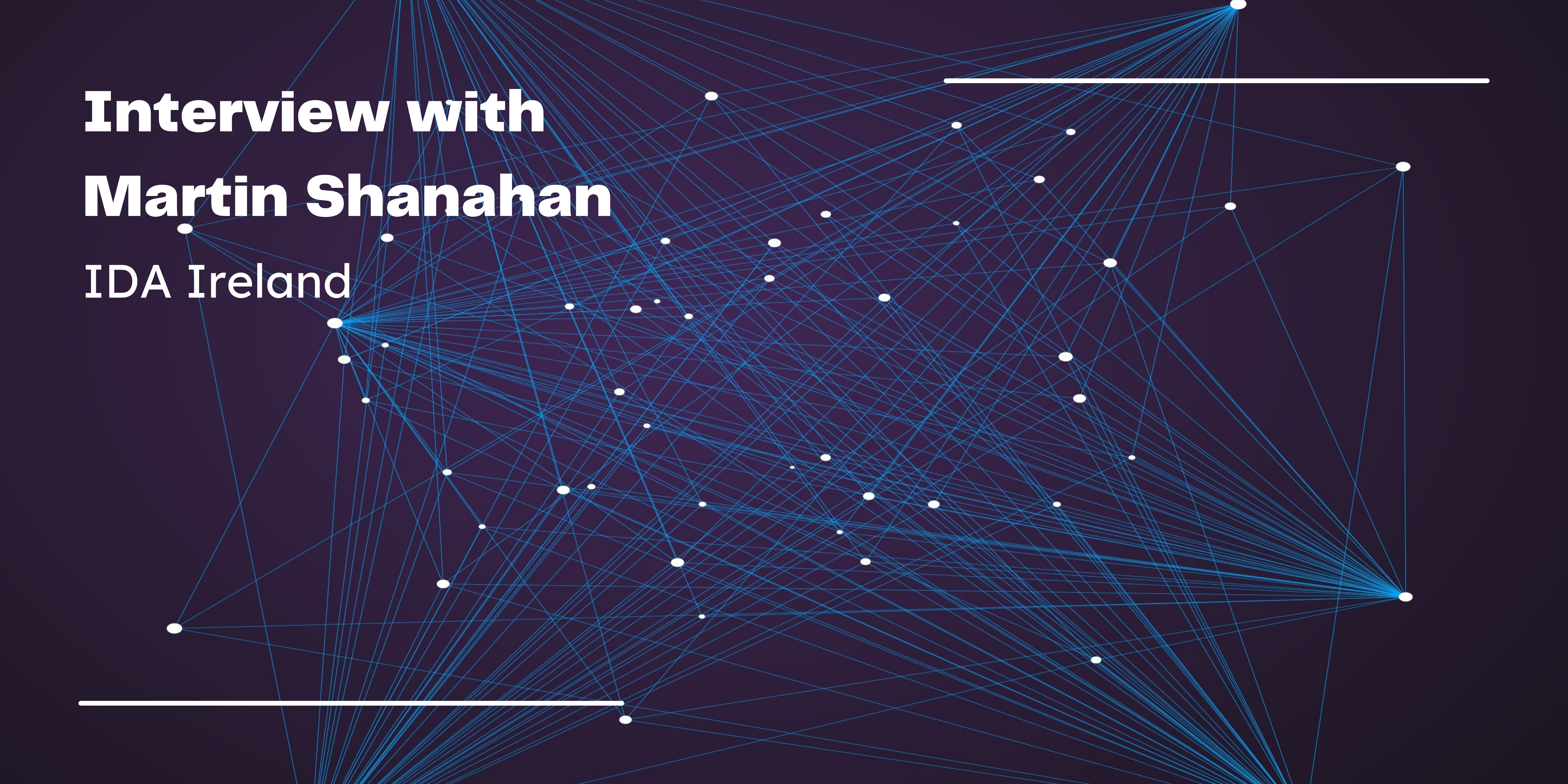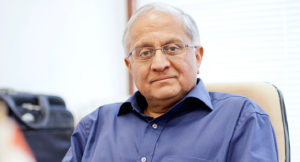Currently, in its 70th year of operations, IDA Ireland, the investment promotion agency of the Government of Ireland, has played a crucial role in attracting foreign investments from all over the world into Ireland. We caught up with Martin Shanahan, CEO of IDA Ireland, to talk about the Irish economy, the attractiveness of Ireland as a destination to set up global operations and the reasoning behind why several Silicon Valley biggies including Facebook, Uber, Apple, Airbnb, and Dropbox locate their European headquarters in the country.
We also caught up with Tanaz Buhariwalla, Director – India, IDA Ireland, to get a glimpse into why leading Indian firms including TCS, Wipro, Tech Mahindra, Infosys, HCL, NIIT, SMT (Sahajanand Medical Technologies), JLR Tata, Wockhardt and BrowserStack have established operations in the country.
While IDA Ireland is officially positioned as an investment promotion agency, as Martin mentions during our conversation for this article, the DNA of IDA Ireland has revolved around its approach of working as a development partner that indeed ‘enables’ an enterprise in making the right decision, as it gears up to establish operations in a new country. IDA acts as a catalyst, helping with relevant introductions to partners and service providers, ensuring the ‘ease of doing business’ that Ireland is proud of, is genuinely felt by the companies trying to enter the region.

Martin Shanahan, CEO of IDA Ireland
We begin with the question we ask all the CEOs we meet: What are your top priorities as CEO of IDA Ireland?
My primary role is to ensure that we continue to have a strong run of inbound investments over the next few years. The last four years have been excellent for us, and my primary responsibility is to continue this positive momentum.
I would probably think diversifying our source markets to attract investments is another significant responsibility I have. Traditionally, the U.S. has been the most critical market for us. When I joined IDA five years back, over 72% of our investments came from this region. While the investment amounts continue to grow at a rapid pace, thanks to similar progress in other geographies, today the U.S. accounts for around 65% of total investments. Of course, our fastest growing markets are in Asia; We’ve seen good progress from India, China, South Korea, and Japan.
Another priority for me is to tackle the negative impacts of Brexit proactively. While it certainly does provide us an opportunity to attract investments as well, the Irish economy has taken a bit of a hit because of Brexit. It is essential for IDA Ireland as an organization to recognize this aspect and work actively to not only attract investments but also nurture them for an extended period. This requires a ‘development focused’ mindset, which I believe is the core DNA of IDA as an organization. We’re looking at investing around U.S. $160 billion in infrastructure, education and other key drivers of ‘ease of doing business,’ which is critical for long-term progress.
Our approach has been to nominate Champions for each pillar, not only to develop policies, but also to implement a programme of initiatives and events to ensure the Diversity & Inclusion agenda is fully visible.
-Martin on Diversity & Inclusion
Take us through IDA Ireland’s focus on specific sectors. We understand that technology, life sciences, medical devices, and international financial services are some of your focus areas. Please elaborate.
There is no doubt that technology is at the forefront of what we do. Companies like Intel, IBM, Microsoft have been in Ireland for decades. Several Silicon Valley majors including Apple, Google, and Facebook, have their EU headquarters in Ireland, and this is mostly because of three or four reasons. I would say the top two are the availability of talent and the culture of Ireland and its people. We certainly have an attractive corporate tax rate of 12.5%, ‘ease of doing business’ has been a focus, and more importantly, there is a vibrant ecosystem that is being created.
New age firms like Uber, Dropbox, Airbnb, and several startups and mid-size firms including ServiceNow, Slack, Pinterest and Guidewire have established in Ireland for these very reasons.
The second significant area where we’ve seen tremendous success is life sciences, pharmaceutical, biologics, and medical devices. We’ve attracted over US $1 billion in investments per annum over the last ten years in this segment. This includes investments from the majors like Johnson & Johnson, Pfizer, and Eli Lilly, in addition to other companies like Sanofi, Ipsen, Merck, MSD, Wuxi, Biomarin, Regeneron, Mallinckrodt and Almac. On the medical device side, we’ve Medtronic, Boston Scientific and others.
The third segment is international financial services – banks and other fintech players. Companies like Citi, Fidelity, and Mastercard have come into the region to set up innovation operations. Post-Brexit, we’ve had Barclays, Standard & Poor’s, JP Morgan and Bank of America Merrill Lynch set up financial services operations in Dublin.
The fourth segment is engineering, especially new technology, research and innovation operations of companies like Jaguar Land Rover and vision systems major, Valeo. There is an ecosystem being created, somewhat organically, for research and innovation in connected and autonomous vehicles. Also, in the food and beverage segment, companies like Coca Cola and Pepsi have established operations in Ireland.
Take us through the development of sector-specific clusters in several parts of Ireland.
The most important point to note here is that an organization like IDA Ireland cannot ‘over design’ and plan a strategy to build clusters. While sector-specific hubs work, it typically grows organically. We can enable it, but it depends on the setting up of large organizations, their partners and suppliers follow, and the quality of research organizations and Universities ensures talent availability. The role of IDA Ireland is to deliver a seamless setup experience, in line with our ease of doing business philosophy.
For example, for cybersecurity there is a vibrant cluster in the South in Cork; In Dublin, there is a hub for financial services and tech. Galway in the West is home to Ireland’s MedTech sector which has become one of the leading clusters for medical device products globally. Ireland is also a centre of excellence for the aircraft leasing industry with more than half of the world’s leased aircrafts owned or managed in Limerick & Dublin.
As IDA Ireland, we’re proactive to let these clusters develop. We ensure there is a plug-and-play setup available to occupy office space, build data centers and connect to all utilities. So, when a company comes to visit – it showcases how easy it is to start operations. It’s smooth and seamless, and that is our role as IDA.
What is your vision for IDA Ireland, say five years from now?
We’ve done very well over the last four years and have exceeded the investment targets we set in our 5-year plan from 2014 to 2019. The next five years are going to be exciting and challenging.
Our growth markets, especially India, China and the rest of Asia are going to be very important.
The potential trade war between the US and China will have an impact globally, and therefore, we need to fine-tune our strategy accordingly.
Broadly, these are some of the themes we’re working on in our next five-year plan:
1. Embracing Automation even further
2. Winning more investment from key economies in Asia Pacific like India
3. Attracting more sustainable investment that is kinder to the environment and society
We understand that you’re an internal champion for diversity and inclusion. Take us through your experience of taking a proactive approach to driving an inclusion agenda.
Firstly, diversity & inclusion is the “right thing to do”. As the hallmark of a civilized society, it is to be expected. Diversity of thought, leads to better business decisions and to better business outcomes. Afterall, a happier workforce is more productive and is increasingly required by investors.
I really believe that those countries and companies that will be successful in the future will be those that win the war for talent. Why would any employer or jurisdiction not want to give themselves full access to all of the talent that exists?
Bringing in people with different backgrounds and perspectives promotes innovation and creativity, both much sought after commodities in a modern society and economy.
Research from McKinsey, Forbes and others has demonstrated companies in the top quartile for gender and ethnic diversity at the executive level were 21% and 33% more likely to have above average profitability. Credit Suisse reported LGBT+ led companies outperformed other index companies by 3%.
In my own organization, I have implemented a Diversity & Inclusion agenda focusing on all pillars of Diversity.
IDA is already a diverse organization with over a dozen nationalities working for the organization and a high gender ratio of women comprising 59% of all staff. Representation of women in my Executive Committee stands at 42%.
Our approach has been to nominate Champions for each pillar, not only to develop policies, but also to implement a programme of initiatives and events to ensure the D&I agenda is fully visible. I have also appointed senior executives as sponsors for each of the pillars to support those working on these agendas.
As an organization, we operate in a highly dynamic environment of global FDI and we need to be able to pivot and adjust focus depending on where opportunities present themselves around the globe. It is essential that we have the skills and experience available to attract companies into Ireland, independent of where they originate from. We have offices all around the world and we are a truly global organisation, my team needs to have the skills to thrive in the global workplace.
My organisation’s Diversity and Inclusion objectives are to mirror the diversity in society at all levels within the organization and to build a culture of inclusion where everyone feels respected, is treated fairly and has the opportunity to progress and excel in their career and is supported in achieving a healthy work/life balance. Change in any organization is not instantaneous; Promoting diversity and inclusion is always ‘work in progress’ and needs to be maintained and nurtured to be effective but the benefits that it brings to an organization make it more than worthwhile.
Tanaz Buhariwalla, Director – India, IDA Ireland, talks about IDA’s journey in India

Tanaz Buhariwalla, Director – India, IDA Ireland
IDA Ireland opened its office in India in 2008 in Mumbai with a team of three. At the time, the team primarily focused on the IT Services sector and on sharing information about Ireland as a business destination. We started at a time when most other jurisdictions had offices in India for decades. Ireland wasn’t as well-known as other countries were and many Indian companies had business partners from most of these countries. Therefore, we started at an extremely low base. We were like a start-up!
In 2011 two additional team members were taken on board with one of them based in Bangalore. The team then extended their focus to a number of sectors. At this point of time, there were less than ten Indian companies operating in Ireland. We have made some amazing progress from that point forward. It is estimated that there are over a hundred Indian companies that operate in Ireland. Team IDA Ireland has supported and continued to effectively work with over 35 Indian companies that have a sizeable footprint in Ireland.
Besides these, we have assisted a similar number of companies’ set-up and operate in Ireland, by making introductions to the Irish ecosystem. We help in various ways – from making market introductions, to finding the right property/office location.
Over the years, not only has there has been an increase in the number of companies setting up their EMEA operations in Ireland, but many of these companies continue to grow their footprint in Ireland and add other functions to serve their European customers. From being a start-up, we developed into being a successful start-up 2014 onwards. This is demonstrated by the clients we have acquired, our retention of them, reference by these clients leading to more clients and the upward trajectory continues.
Of course, success hasn’t come easy to us. We have had innumerable meetings with executives of companies we know would fit in well within the Irish ecosystem. We have carried out direct marketing activities, held focussed roundtable meets and even got recognised as thought leaders and industry facilitators along the way. We could be found at all significant sectoral events and have organized a number of knowledge-focused webinars.
There is no doubt that technology is at the forefront of what we do. Several Silicon Valley majors including Apple, Google, and Facebook, have their EU headquarters in Ireland, and this is mostly because of three or four reasons.
Sector focus of IDA Ireland in India
The India team focuses on all the sectors that Ireland has strengths in, including ICT (services and product companies), Pharmaceuticals and Medical Devices and Advanced engineering sectors.
While we have the larger companies from each of these sectors in Ireland, the IDA team in India has been nimble, adapting to changing times and needs of these industries. To elaborate, the top five IT services companies (including TCS, Tech Mahindra, Wipro, Infosys) have all had large customer support centres in Ireland. With the industry shift globally towards ‘digital’ and the thriving ecosystem and talent base Ireland offers, each of these companies are building their digital capabilities and have R&D teams or Centres of Excellence and Labs established in Ireland. Presently work is carried out in the area of Digital, AI, IOT, Analytics, Fintech, Bots, Smart Cities, E-commerce, e-Payments, Cybersecurity, Software for Autonomous vehicles and mobile applications to name a few. BrowserStack, NIIT Ltd and Kellton Tech are some mid-sized Indian companies that have notable operations in Ireland.
Other factors that have pushed more companies to look at the EU market is the US government policies and Brexit bringing a number of Indian companies to manage their European operations through Ireland.
In the life Sciences sector, companies like Wockhardt, Sequent Scientific, Biotech VisionCare, Unichem have a presence in Ireland. SMT, one of India’s largest stent manufacturing companies also has a presence in the region. Major Indian pharmaceutical companies having operations and exposure to the UK market are likely to be adversely affected due to Brexit. We are engaged with a number of them that are looking to put in warehousing, supply-chain logistics and manufacturing in Ireland to continue to seamlessly service their European clients.
Engineering companies like Crompton Greaves, Deepak Fasteners, Excel Plastics have since long had manufacturing plants in Ireland. JLR has set up a software R&D centre for autonomous cars. We are engaged with a number of Auto companies and OEMs who are also investing in developing EV platforms and may do so out of Ireland.
Some Indian companies in Ireland:
- The top five Indian IT services companies – TCS, Infosys, Tech Mahindra, Wipro, HCL – have large operations in Ireland
- Mid-tier IT/Product companies in Ireland include NIIT Ltd, Kellton Tech, BrowserStack
- Some companies manufacturing in Ireland include Crompton Greaves, Deepak Fastners, Excel Plastics
- Lifesciences companies include Wockhardt, SMT, Sequent Scientific, Biotech VisionCare
- Centres of Excellence and R&D in Ireland: Tech Mahindra has a CoE in the telecom space in Dublin; TCS and Infosys have small R&D teams in Ireland





